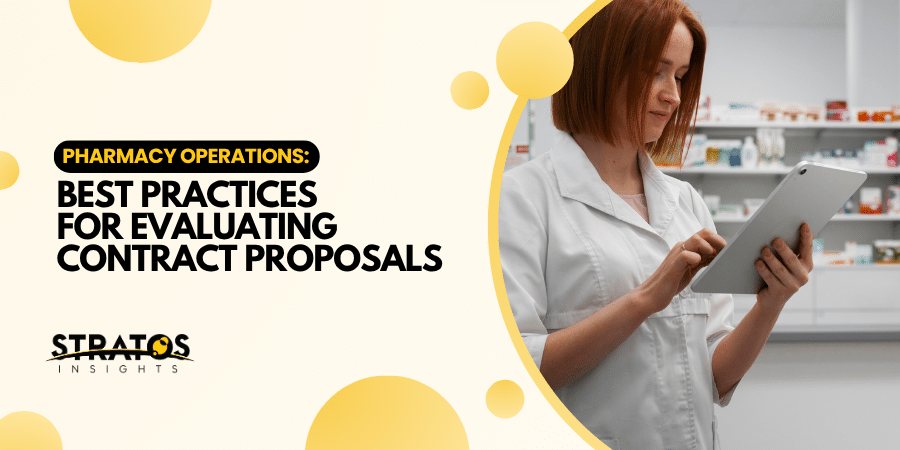Pharmacy owners and operators must carefully evaluate contract proposals to ensure they are securing optimal agreements that foster growth, enhance profitability, and ensure compliance with industry standards. Whether you’re an independent pharmacy owner, part of a larger chain, or acquiring new pharmacies, understanding best practices in contract evaluation is crucial for achieving operational excellence.
Understanding the Core Elements of a Third-Party Contract
Before diving into the evaluation process, it’s important to establish a solid understanding of what constitutes a beneficial contract. A well-rounded contract should not only offer financial advantages but also align with your pharmacy’s operational goals and compliance requirements. Key elements to consider include:
- Identifying the Network: It’s important to identify the network, patient, and prescriptions to understand the weight of the contract as it relates to your business.
- Filtering for Contract Adjudicated Prescriptions: For a true gauge of contract performance, it’s important to filter prescriptions that are not associated with the performance of a contract (U&C, COB, Cost Submitted).
- Visibility into Channel Performance: Understanding how a contract proposal impacts profitability for all channels (Brand 30/90 day, Generic, GLP-1, Specialty) and in aggregate is important for negotiations.
- Accurate Cost of Goods: For accurate contract analysis, it is important to leverage tools that use your cost of goods (invoice, rebates, and discounts).
- Understanding your State Specific Statutes: Some states have legislation protecting providers from filling prescriptions below their cost. This may change how you view a proposal. Knowing which channels are profitable allows for selective execution.
- 340B: Understand the impact of any 340B business related to the contract proposal.
Understanding the Core Elements of a Wholesaler or Buying Group Contract
Effective contract proposals are often rooted in strong relationships with reliable vendors. When evaluating proposals, consider:
- Channel Specific Knowledge: Understand the different channels, associated rates and how it applies to your book of business. Are GLP-1’s carved in or out of your performance matrix?
- Performance and Compliance: Asses your current performance as it relates to generic purchasing (GCR/GPR) and understand how the proposal will impact your cost of goods.
- Contract Terms: Understand how the details of a contract can impact your overall deal.
- Performance Monitoring: It’s important to monitor how the wholesaler/buying group is performing in relation to the terms of the contract. Trending invoice prices and discounts by class.
Ensuring Ongoing Partnership Success
Once a contract is in place, continuous management and monitoring are essential. This helps ensure that the vendor relationship continues to deliver value. Best practices include:
- Regular Performance Reviews: Schedule periodic meetings to evaluate vendor performance against agreed metrics and address any deviations.
- Feedback Loop: Maintain an open line of communication with vendors to promptly address issues and explore improvements.
- Adaptability: Stay agile to adjust contracts when business needs or market conditions change, leveraging amendment clauses or renegotiating terms.
Conclusion: Your Path to Better Contracts
Effective pharmacy operation hinges on smart contracting. By following these best practices—grounded in comprehensive data insights, thorough analysis, and strategic negotiation—pharmacy owners and operators can secure contracts that support their operational and financial goals.
For those looking to refine their contract evaluation processes, consider partnering with experts who understand the intricacies of the pharmacy industry. Stratos Insights offers tailored guidance and advanced tools to empower pharmacies in optimizing their operations and maximizing their resources through smarter contract management.



